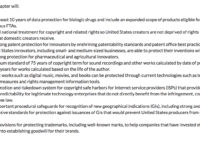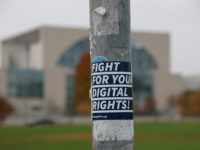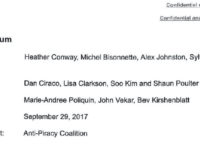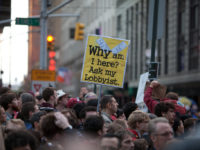As Canadian NAFTA negotiations continue in the aftermath of a U.S.-Mexico agreement on a trade deal, the inclusion of a mandated copyright term remains a bit of mystery. The U.S. has long been focused on getting Canada to extend the term of copyright beyond the international treaty standard of life of the author plus 50 years and seems likely to want to do so here. If so, the cost will be significant, locking down works from the public domain for decades and potentially increasing educational costs by millions of dollars. The U.S. fact sheets on the deal have undergone regular changes which suggests that the issue may still be in play. The original fact sheet issued last week described the copyright term provision as follows:
Post Tagged with: "copyright"
Crunch Time in the NAFTA Negotiations: What’s at Play for Canada on Digital Policy
As the NAFTA negotiations hit a possible home stretch this week, the focal point has been primarily on issues such as dispute resolution, the dairy sector, and the auto industry. However, the digital policy issues will have huge implications for Canada and the outline of the agreement between the U.S. and Mexico suggests that Canada is facing considerable pressure to agree to changes to our copyright, patent, IP enforcement, and digital policy rules, contrary to our preferred negotiation approach.
The U.S. appears to be pushing for a TPP+ approach – the TPP provisions plus some additional changes it did not get as part of those negotiations. This is notable since Canadian authorities admitted that the TPP went far beyond any previous Canadian free trade agreement. The Canadian starting point is presumably the CPTPP, the revised TPP where Canada successfully argued for the suspension of some of the U.S.-backed provisions. This post outlines five of the biggest issues that are likely at play, though many others such as de minimis rules for shipments that affect online commerce will be closely watched and could ultimately require future reforms.
Maximum Mudslinging: How Powerful Lobby Groups Are Working to Sideline Civil Society Voices on Digital Policy
With just over a year to go before the 2019 Canadian national election, the upcoming fall Parliamentary session will undoubtedly feature a renewed urgency to pass legislative proposals and craft new policies that will form the basis for future election platforms. Digital issues will surely feature prominently including the copyright review and Copyright Board reform, website blocking proposals, privacy safeguards, the broadcast and telecom review, a national data policy, and the implementation of the IP strategy. The same is true elsewhere with Europe to again consider copyright reform, the U.S. assessing privacy rules, and many other countries engaged in digital policy initiatives. However, just as the broader public is finding its voices on these issues with policy submissions, petitions, and efforts to ensure that a public interest perspective is a core part of the process, the traditional lobby groups that have long dominated the policy discourse are steadily working to undermine those efforts with cries of user voices being “mob-driven“, “hacking“, or “disinformation.”
“This Really Isn’t Our Fight and It Will Cost Us”: Behind the Scenes of CBC Support for Bell’s Website Blocking Plan
Bell’s behind-the-scenes effort to drum up support for its site blocking proposal at the CRTC has been the subject of several posts over the past few months. Based primarily access-to-information requests, I’ve identified Bell pressure on universities and colleges such as Ryerson University, George Brown College, and Brock University, who all submitted support letters to the CRTC, though those letters were not always quite what they seemed (Brock University quickly distanced itself from the submission, the Dean behind the Ryerson letter advised Bell that he could not speak for the faculty). Earlier posts also highlighted Bell’s astroturfing campaign with its own employees and its undisclosed meetings with CRTC officials months before the proposal was made public.











